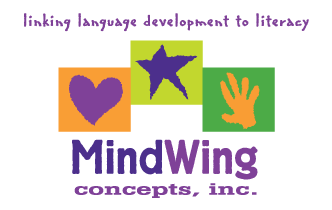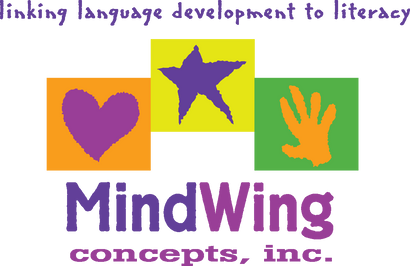Secure Checkout. FREE SHIPPING for Continental U.S. Orders over $60.
Menu
-
- Home
-
About Us
-
The Approach
-
Linking Language & Literacy
-
MindWing Learning
-
Learning Resources
-
SHOP
-
Blog
-
- About MindWing
- Our People
- Contact Us
- Your Account
- Login
-
United States (USD $)

Secure Checkout. FREE SHIPPING for Continental U.S. Orders over $60.
MindWing Concepts Blog

Tool Tuesday: 3 Prompts for ChatGPT to Facilitate Narrative Teaching
March 25, 2024
Artificial Intelligence (AI) is, of course, one of the hottest topics in technology these days. Its recently emerging abilities are producing a mix of excitement and anxiety for the ways that it is disrupting education and other fields, but like many technology developments, it should be viewed as a tool. You may not know where to start, but one path is using ChatGPT’s free tools along with prompts that can help you plan narrative language interventions. ChatGPT is a chatbot from OpenAI (owned by Microsoft) using generative AI, which is a form of artificial intelligence that can create text, images, video and other media...

Tool Tuesday: Maca and Roni Video Series Provides Tons of Context for Narrative Teaching
February 26, 2024
Looking for narrative structure in varied places will yield you many TOOLs! This includes sources such as games, current events, interactive websites, and of course, videos. In this post I want to expand upon the great work of Dr. Anna Vagin, who several years ago co-presented a webinar with Maryellen Moreau on the power of using animations for social and language learning (still available for free here). A quote from this webinar resonates strongly: Jerome Bruner (1986, 1996) referred to narrative thinking as a capacity to “read other minds”; “to make accurate inferences about the motives and intentions of others based on their observable behavior and the social situations in which they act. Narrative thinking is the very process we use to understand the social life around us,” take perspective and to construct situation models...

Tool Tuesday: Need a quick assessment tool? Try the CUBED!
January 29, 2024
I have been serving an adjunct role at Boston University for 5 semesters providing supervision to graduate students in their first clinical experiences in the in-house clinic. One of the routines for the semester is to teach and use processes for obtaining baseline and post-treatment data. It was by equipping students in this manner that I discovered the availability of the CUBED, along with the previously mentioned SLAM Cards. The CUBED is a “family of screening and progress monitoring tools” that includes a huge package of graded story samples (levels K-8) with narrative language listening and reading materials and measures....
Tech Tuesday: Create Images with Story Elements using AI!
October 30, 2023 1 Comment
You have probably heard chatter about the potential and possible pitfalls of AI in educational contexts. This month- a simple way to harness the possibilities of AI image generation. Generative AI has been around for many years but has only been recently been made widely available to the public via a variety of webtools. This kind of artificial intelligence is called “generative” for its ability to use growing neural networks to create content, such as novel text, imagery or even music and video. ChatGPT is a recent tool which responds to prompts to create text, and I recently blogged about its usefulness in generating problem solving scenarios–also useful for targeting story elements. Along with ChatGPT, Microsoft’s OpenAI offers DALL-E, an image generator which is able to create pictures from “natural language,” as opposed to code. This is most easily accessed through the Bing Image Creator, a simple tool that develops images from scratch (not search)!...

Tech Tuesday: Finding Story and Other Text Structure in “Minecraft” Education
September 25, 2023
We have previously discussed the potential of the incredibly popular game Minecraft for developing narrative language skills through the use of Story Grammar Marker®. At that time, I had described the game as potentially too complicated to use as an actual tool in activities, but I have since rethought that. The iPad version ($5.99) will allow you to create a simple “world” (use the Creative mode) and the building interface is easy to learn, operating much like LEGOs. As a result, spaces can be used to scaffold language for describing settings. Minecraft Education, on the other hand, offers a specialized, structured collection of Worlds you can use for both narrative and expository language. The software is available to anyone with a Microsoft 365 account and usable on a laptop, desktop, or again on the iPad...

Tech Tuesday/Summer Study Series: Narrative Language and Social Emotional Programming
August 29, 2023
“Interjections” has always been my favorite Schoolhouse Rock song, and I am sure we have some we would like to utter about summer being (almost!) over. But it is always good to return to work with a sense of purpose, right? It has been fun writing this year’s Summer Study Series and I thought this last piece was particularly relevant to our roles in being part of a collaborative community in schools. Engaging minds and hearts: Social and emotional learning in English Language Arts (click for full free PDF article) is an honest, insightful look at SEL programming and has helpful suggestions for its integration in ELA classes. To me, though not explicitly stated here, it highlights the role of narrative language intervention and applications of Story Grammar Marker® and the Critical Thinking Triangle in helping our students unpack stories to learn from the higher level elements of feelings, plans and mental states. Though this article relates to such instruction in Canada, it is just as relevant to schools in the USA...
